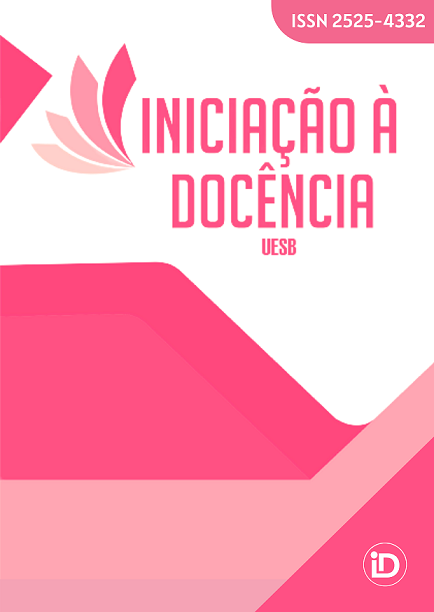When human experiences build oases: reflexions from the pedagogy of Paulo Freire about the role of the pedagogue in non-formal education
DOI:
https://doi.org/10.22481/riduesb.v6i2.9597Keywords:
non-formal education. pedagogy of autonomy. non-school education.Abstract
This article, supported by Freirean theory, discusses the role of the pedagogue in spaces of non-formal education, observing the pedagogic practice and the possibilities of performance for this kind of professional in non-school environments. It was conducted in a qualitative research based on participant observation, semi-structured interviews and notes on a field journal. The research was carried out in a non-governmental institution, called “Associação Beneficente Oásis,” in the city of Amargosa - Bahia - Brazil. As a discussion of the results, the systematization of pedagogic methods of non-formal education and the role of the pedagogue in this educational modality with kids, adolescents and women who meet demands of living locally with few financial resources and in a context that presents great challenges was addressed. It was noticed that the educator in this scenario must present, in their craft, flexibility and fluidity, with the purpose of forming critical subjects starting from the liberating and popular education focused on the autonomy of the subject, the fight for justice and the capability of changing worlds.
Downloads
References
BRANDÃO, Carlos Rodrigues. O Que é Educação. São Paulo: Brasiliense, 2007.
BAIRRÃO, José Francisco Miguel Henriques. Escuta Participante como Procedimento de Pesquisa do Sagrado Enunciante. Estudos de Psicologia, v. 10, n. 3, p. 441-446, 2005.
FREIRE, Paulo. Extensão e Invasão Cultural. In: Souza. A. I. (Orgs.). Paulo Freire: vida e obra. São Paulo: Expressão Popular, 2010, p. 261-282.
FREIRE, Paulo. Pedagogia da Autonomia: saberes necessários à prática educativa. Rio de Janeiro: Paz e Terra, 1996.
FREIRE, Paulo. Pedagogia do Oprimido.17ª ed, Rio de Janeiro, Paz e Terra, 1987.
FREIRE, Paulo. Pedagogia do Oprimido. Rio de Janeiro, Paz e Terra, 2021.
FREIRE, Paulo. Ação cultural para a liberdade. 5ª ed., Rio de Janeiro, Paz e Terra, 1981.
GOHN, Maria da Gloria. Educação Não Formal e o Educador Social: atuação no desenvolvimento de projetos sociais. São Paulo: Cortez, 2010.
GOHN, Maria da Gloria. Educação Não Formal e Cultura Política: impactos sobre o associativismo do terceiro setor. São Paulo: Cortez, 1999.
LIBÂNEO, José Carlos. Pedagogia e Pedagogos, para quê? São Paulo: Cortez, 1998.
MANTOVANI, A.; BAIRRÃO, J. F. M. H. Psicanálise e religião: pensando os estudos afro-brasileiros com Ernesto La Porta. Memorandum Memória e História em Psicologia, v. 9, p. 42-56, 2005.
MINAYO, Maria Cecília de Souza (Org.). Pesquisa Social: teoria, método e criatividade. Petrópolis, RJ: Vozes, 2009.
OLIVEIRA, Roberto Cardoso de. O Trabalho do Antropólogo: olhar, ouvir, escrever. Revista de Antropologia. v. 39, nº 1, p. 13 – 37, 1996.
SCHNORR, Giselle Moura. Pedagogia do Oprimido. In: Souza. A. I. (Orgs.). Paulo Freire: vida e obra. São Paulo: Expressão Popular, 2010, p. 67-96.
SILVA, V. G. O antropólogo e sua magia. São Paulo: Edusp, 2006.
TRILLA, Jaume. A Educação Não Formal. In: ARANTES, Valéria Amorim (Org.). Educação Formal e Não Formal: pontos e contrapontos. São Paulo: Summus, 2008.
Downloads
Published
How to Cite
Issue
Section
License
Copyright (c) 2021 Revista de Iniciação à Docência

This work is licensed under a Creative Commons Attribution 4.0 International License.






